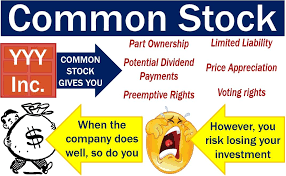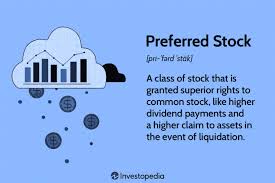A Beginner’s Guide to Investing in the Stock Market
Investing in the stock market can seem daunting, especially for beginners. However, with the right knowledge and guidance, it can be a great way to build wealth over time. In this guide, we will cover the basics of investing in the stock market, including what stocks are, how to get started, and tips for success.
What are Stocks?
Stocks are shares of ownership in a company. When you buy stock in a company, you are essentially buying a small piece of that company. Stocks are traded on stock exchanges, such as the New York Stock Exchange (NYSE) or the NASDAQ.
Also Read:
Get Started with Investing: 7 Tips for Beginners
How to Get Started
Getting started with investing in the stock market is easier than you think. Here are the steps to follow:
- Open a Brokerage Account: Find a reputable online brokerage firm, such as Robinhood, Fidelity, or Charles Schwab, and open an account.
- Fund Your Account: Deposit money into your account, which will be used to buy stocks.
- Choose Your Stocks: Research and select the stocks you want to buy.
- Place an Order: Use your online brokerage platform to place an order to buy your chosen stocks.
Types of Stocks
There are two main types of stocks: common and preferred.
Common Stock
Common stock represents ownership in a company and is the most common type of stock. When you buy common stock, you are essentially buying a small piece of the company. Common stockholders have voting rights and are entitled to receive dividends, which are portions of the company’s profit.

Here are some key characteristics of common stock:
- Voting rights: Common stockholders have the right to vote on company matters, such as the election of the board of directors or mergers and acquisitions.
- Dividend payments: Common stockholders are entitled to receive dividends, which are typically paid quarterly or annually.
- Limited liability: Common stockholders have limited liability, meaning their assets are protected in case the company incurs debt or liabilities.
- Variable dividends: The amount of dividends paid to common stockholders can vary depending on the company’s profit and dividend policy.
- Variable voting power: The voting power of common stockholders can vary depending on the number of shares they own.
Preferred Stock
Preferred stock, on the other hand, has a higher claim on assets and earnings than common stock and typically does not carry voting rights. Preferred stockholders receive a fixed dividend payment and have priority over common stockholders in receiving assets if the company is liquidated.

Here are some key characteristics of preferred stock:
- No voting rights: Preferred stockholders typically do not have voting rights.
- Fixed dividend payments: Preferred stockholders receive a fixed dividend payment, which is usually higher than the dividend paid to common stockholders.
- Priority in liquidation: Preferred stockholders have priority over common stockholders in receiving assets if the company is liquidated.
- Limited upside potential: The value of preferred stock is typically less volatile than common stock and has limited upside potential.
- Higher claim on assets: Preferred stockholders have a higher claim on assets than common stockholders.
It’s important to note that preferred stock is often used by companies to raise capital without diluting the ownership of common stockholders. Preferred stock can also be convertible into common stock, which means that preferred stockholders can convert their shares into common stock under certain conditions.
Stock Market Indexes
Stock market indexes, such as the S&P 500 or the Dow Jones Industrial Average, represent a basket of stocks and are used to track the overall performance of the market.
Tips for Success
Here are some tips for success when investing in the stock market:
- Start Small: Don’t invest more than you can afford to lose.
- Diversify: Spread your investments across different asset classes and industries.
- Research: Do your homework before buying stocks.
- Long-Term Approach: Invest for the long-term, rather than trying to make quick profits.
- Consult a Financial Advisor: If you’re new to investing, consider consulting a financial advisor.
Conclusion
Investing in the stock market can be a great way to build wealth over time. By understanding the basics of stocks, getting started with a brokerage account, and following tips for success, you can set yourself up for long-term financial success.
By following the tips outlined in this post, beginners can get started with investing in the stock market and set themselves up for long-term financial success. Remember to always do your research, diversify your investments, and consult a financial advisor if needed.
I hope this helps! Let me know if you need anything else.










